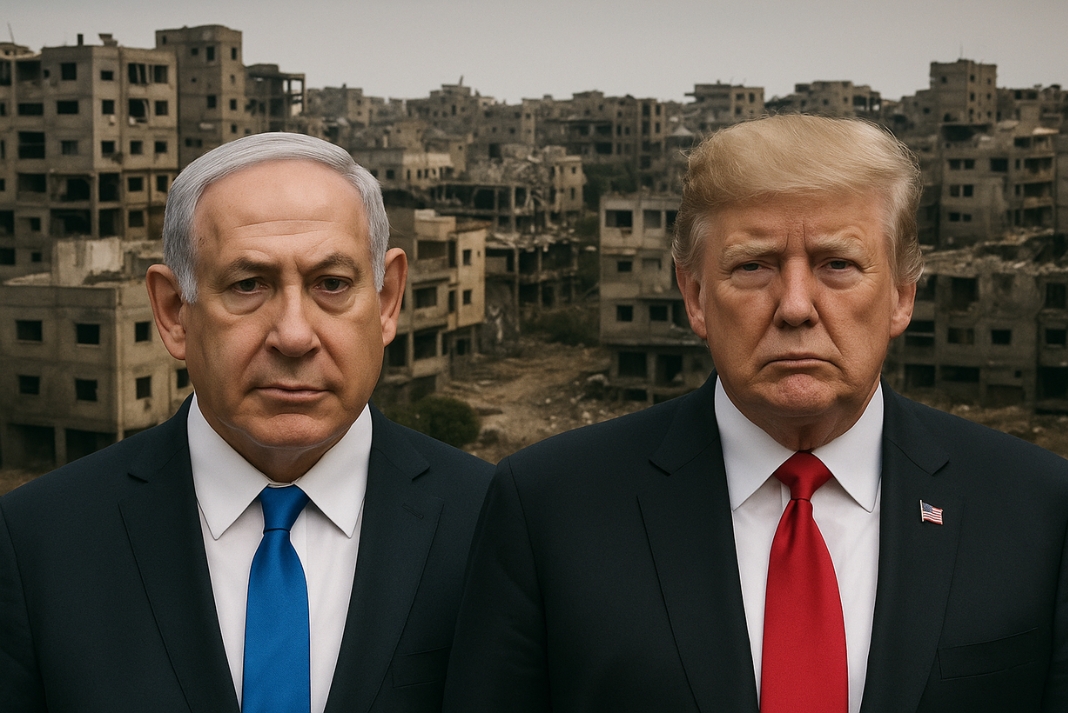Ceasefire Setback: Israel and Trump Administration Withdraw from Gaza Talks

The negotiating teams representing Israel and the United States’ special representative to the Middle East have formally withdrew from the ceasefire talks with Hamas. The precariousness of the Middle East peace is evident in this. A diplomatic effort to alleviate tensions in Gaza, which has endured years of war, isolation, and humanitarian suffering, came to an end with Thursday’s declaration. Many people are even more worried that a fresh wave of violence would break out as a result of the decision.
Talks Fall Apart After Weeks of No Progress
The main goal of the ceasefire talks, which were led by Egypt and Qatar with help from the UN, was to stop the fighting between Israel and Hamas, the Islamist party that administers Gaza. The talks were mostly about four things:
- Stopping the war
- Making it easier for Gaza to get over the Israeli-Egyptian embargo
- Getting the Israeli hostages back from Hamas
- Stopping rocket attacks on southern Israel
But even after weeks of high-level talks and shuttle diplomacy, nothing changed. People who were close to the talks said that everyone was getting more and more angry. Israeli officials said that Hamas was using the talks to buy time while it continued to stock up on weapons. Hamas leaders said that Israel still wouldn’t lift the siege that has hurt Gaza’s economy and made it hard to get basic needs.
The envoy’s words show that the plan has changed
After the withdrawal, President Trump’s Middle East envoy, who was a key player in the now-defunct Abraham Accords and has been involved in regional diplomacy since leaving office, made a statement. The envoy said,
“We can’t keep talking if Hamas doesn’t do anything to make real peace happen.” “The US still supports Israel’s right to defend itself and is committed to its safety.”
The envoy made it clear that the action was not a permanent end to peace talks, but a planned break. “Trust is necessary for diplomacy to work.” We are stepping back to rethink and change our plan.
Political and strategic pressures
There were many reasons why the breakdown happened. Israeli officials are under more and more pressure from their own people to take a hardline position against Hamas, especially after rocket firing targeting southern Israeli towns started up again. Right-wing groups in the government have accused Prime Minister Benjamin Netanyahu of giving in by even being a part of the talks.
In the US, especially among Republicans who support Trump’s legacy, it is still quite difficult to negotiate with a group that has been labelled a terrorist organisation. Politically, any sign of leniency, even for the sake of peace, is perilous.
Hamas sees agreeing to a truce without real concessions, like lifting the embargo, as giving in. The leaders of Gaza say that a real cease-fire must include promises of economic aid and sovereignty, two things that Israel has not been willing to give up on.
The Humanitarian Costs of Political Failure
It is citizens who will pay the price for diplomatic failure while diplomats rethink their plans. Gaza’s 2.3 million people, half of whom are youngsters, have lived through 17 years of blockades, wars, and a failing infrastructure.
There aren’t enough hospitals, the power goes out a lot, there isn’t enough clean water, and the unemployment rate is one of the highest in the world. Every time discussions fail, the residents of Gaza get ready for more airstrikes, more people being forced to leave their homes, and more pain.
The United Nations Office for the Coordination of Humanitarian Affairs (OCHA) says that more than 30% of homes in Gaza are still damaged or destroyed from earlier conflicts. Border constraints and political deadlock have stopped reconstruction.
International Mediators Are Under Pressure
The U.S. and Israeli negotiators have stepped back, so it is now almost totally up to Egypt, Qatar, and the United Nations to keep the talks going. These three groups have historically played important roles behind the scenes in stopping full-scale conflict.
Egypt, which borders Gaza, has been important in earlier ceasefire agreements. But Cairo has its own problems at home, and more and more people are doubting its capacity to change Hamas’s mind or calm down the Israeli military’s actions.
A Fragile Peace
In the hours after the announcement of the withdrawal, things on the ground stayed tense but quiet. But not many people think the calm will stay. Reports say that more troops have already been sent to the Israel-Gaza border. Israeli defence officials have also said that they will take “preemptive measures” if rocket assaults start again.
Gaza is holding its breath again for now. Families in homes lighted by candles and powered by generators hold on to faith that diplomacy will come back before conflict does.
What’s next
There is no clear plan for the future. The Biden administration has continued to back Israel, but they have also told them to be careful. European countries have asked for discussions to start up again, but they don’t have much power on either side. Human rights groups are asking everyone involved to put civilian lives first and not make the same mistakes that were made in previous wars.
The world has given up on Gaza, which is a tragedy in and of itself. Peace will stay out of reach, and a humanitarian disaster will almost certainly happen.
The post Ceasefire Setback: Israel and Trump Administration Withdraw from Gaza Talks appeared first on Digpu News.
News